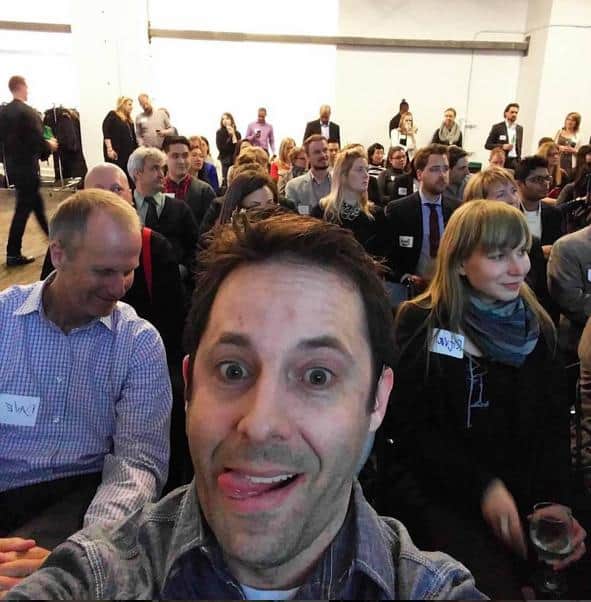 I had the privileged opportunity to participate on a panel last night at Culture Amp‘s 2nd People Geekup in Toronto at the amazing MaRS Discovery District venue. We talked about everything related to workplace culture, employee engagement, people analytics, change management, human resources management and more. One thing that was on my mind the entire night, and I kind of alluded to it when I spoke, was the relationship between workplace culture and workplace engagement. What is the relationship? Which is more important? Which one comes first? Is one the cause, and the other the effect? Is one a result versus a strategy? Am I making any sense at all?
I had the privileged opportunity to participate on a panel last night at Culture Amp‘s 2nd People Geekup in Toronto at the amazing MaRS Discovery District venue. We talked about everything related to workplace culture, employee engagement, people analytics, change management, human resources management and more. One thing that was on my mind the entire night, and I kind of alluded to it when I spoke, was the relationship between workplace culture and workplace engagement. What is the relationship? Which is more important? Which one comes first? Is one the cause, and the other the effect? Is one a result versus a strategy? Am I making any sense at all?
Am I Smoking Crack Here?
Maybe I’m over-thinking this but during the course of my career in HR I have asked questions, debated, researched and tried to make sense of all of this. I think I have figured it out, and I am going to try to make sense of this. Here goes it!
According to BusinessDictionary.com, the definition of organizational culture is “the values and behaviors that contribute to the unique social and psychological environment of an organization”. It further states that culture includes expectations, experiences, philosophy, shared attitudes, customs and rules, and that culture is shown in how the organization conducts its business, treats employees, enables decision making, communication styles and processes and employee commitment.
Here’s My Point
People talk all the time about culture strategy, and having to create and build culture. What they are really saying is that we need to create and build the foundational elements of the organization, and the effect of how strong the organization is, is an awesome workplace culture. You can’t skip over building the foundation of the house and expect the house to stand on its own.
So what exactly makes up the foundational elements of an organization? It’s relatively simple actually. It starts with the organizational philosophy, vision, mission and core reason for why the organization exists. Why? If your employees have no emotional connection to the core purpose of the organization, what are they really doing? Producing widgets and moving them from point A to point B? If they’re not emotionally invested in a positive way, do you really think your workplace culture is going to be rocking?
Second, the “employee experience lifecycle” is your HR strategy. Each phase of the lifecycle needs to be carefully thought through so that the experience of each employee across your organization is awesome. I am not going to go into great detail about what makes up the lifecycle but it’s essentially 6 phases – Recruitment, Engagement, Performance, Succession, Development and Transition. How do you onboard new employees? How do you support the optimization of employee performance? What emphasis do you place on employee learning and development? How about leadership development? Do employees have the opportunity to step outside their comfort zones to create and innovate? Do you actually measure employee engagement in your organization? If you do, do you actually do anything with the data you collect? You get the idea.
The third and final element is brand, specifically employer brand. Everything you say and do contribute to your employer brand, and your employees ultimately define it. If you’re having a tough time attracting and/or retaining talent I would bet there’s something going on with the perception of your employer brand. Simply put, there’s something really sucking about where you work.
What’s the Moral of the Story?
Nothing I talked about is earth shattering, but I think the point here is we’re complicating things when they really aren’t that complicated. Organizational culture is the effect of the specific things you do in your organization – vision, people practices and brand. Ignore this stuff and you’re simply wasting your time doing nothing.